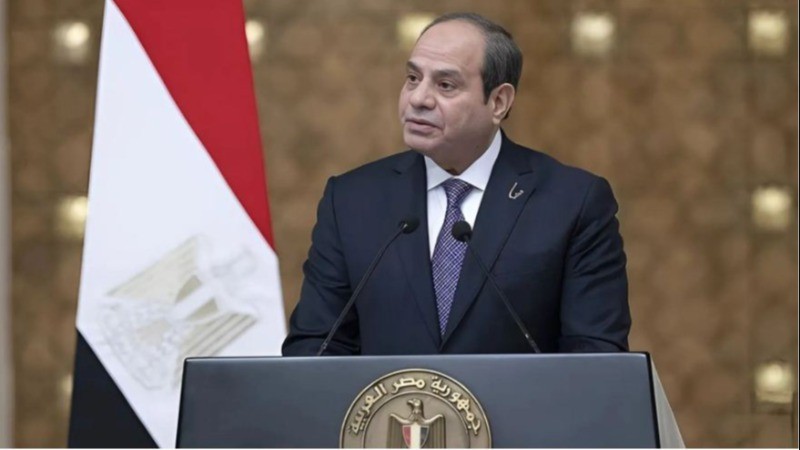
Egyptian President Abdel Fattah al-Sisi has proposed a two-day truce in Gaza, along with a limited exchange of hostages. This initiative aims to pave the way for a complete ceasefire after more than a year of conflict between Israel and Hamas.
The proposal suggests that four Israeli hostages held in Gaza would be exchanged for Palestinian prisoners in Israeli jails. Following this initial exchange, further negotiations are expected to take place within ten days, according to Sisi during a news conference in Cairo. However, he did not clarify whether this plan has been formally presented to Israel or Hamas.
While Sisi's proposal was announced, Israel continued its military operations in Gaza and engaged in conflicts with Hezbollah in Lebanon, along with launching air strikes against Iran. These air strikes occurred in response to Iranian missile attacks and have raised international calls for restraint. The UN Security Council is set to convene at Iran's request, where Tehran seeks condemnation of the strikes that reportedly resulted in the deaths of four Iranian soldiers.
Iranian officials have downplayed the significance of the strikes, claiming limited damage. President Masoud Pezeshkian assured that Iran does not seek war but is prepared to deliver an "appropriate response." Foreign Minister Abbas Araghchi mentioned that Tehran had received warnings before the attacks, and reports suggest that Israel aimed to prevent further escalation.
In financial markets, oil prices fell by up to five percent as traders reacted to Israel's actions, which avoided targeting Iran's energy infrastructure.
Israel's military actions followed an October 1 missile attack from Iran, which was reportedly in retaliation for the deaths of militants aligned with Tehran. Prime Minister Benjamin Netanyahu described the Israeli operation as "precise and powerful," claiming it achieved its objectives. He also faced pressure to secure the release of hostages held in Gaza during a memorial event for victims of Hamas's October 7 attack.
Egypt, along with Qatar and the United States, has been mediating indirect negotiations for several months with limited success. Israeli spy chief David Barnea visited Qatar to discuss restarting talks regarding a hostage agreement. Families of the hostages have urged the Israeli government to reach an agreement, especially after the killing of Hamas leader Yahya Sinwar.
Key issues stalling progress include Hamas's demand for Israel to completely withdraw from Gaza, a point Israeli officials have rejected. Israeli Defence Minister Yoav Gallant indicated that "painful concessions" would be necessary for negotiations, asserting that military action alone will not fulfill the country's objectives.
Of the 251 hostages taken during the October 7 attack, 97 are still held in Gaza, including 34 who the Israeli military claims are deceased. Amid these tensions, a tragic incident occurred when a truck crashed into a crowd near a central Israeli intelligence complex, resulting in one death and over twenty injuries.
The conflict continues to escalate, with Israeli airstrikes hitting multiple locations in Lebanon, causing significant casualties, including at least 21 deaths in southern Lebanon on Sunday. The war has claimed at least 1,615 lives in Lebanon since September 23, though actual numbers may be higher due to reporting gaps.
In Gaza, heavy bombing persists, with the Israeli military reporting the deaths of another 40 militants. United Nations Secretary-General Antonio Guterres has expressed deep concern for the welfare of civilians in Gaza, emphasizing the unbearable conditions faced by those trapped in the conflict.
Sisi has called for immediate humanitarian aid to address the looming threat of famine. Reports indicate that an Israeli strike on a school sheltering displaced Palestinians resulted in at least nine deaths, with the Israeli military investigating the incident.
Since the conflict began last year, the death toll among Palestinians has exceeded 42,924, with the majority being civilians, as per figures from Gaza's health ministry.